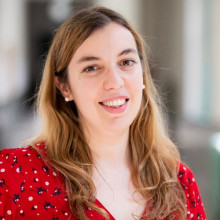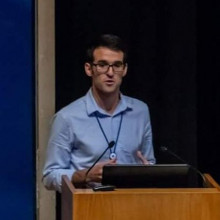Articles & Publications
An Overview of FAIRsFAIR Competence Centre
The FAIRsFAIR Competence Centre is a shared hub of expertise in implementing FAIR principles, offering leadership, coordination and services to connect relevant people, guidance, learning resources and curricula in different thematic areas. It serves as a nexus between the FAIRsFAIR project and research communities for a two-way communication, and a source of knowledge about how FAIR competences can be enhanced in ways relevant to their research data practices.
THE FUTURE OF FAIR (White Paper)
In 2021 we mark five years since publication of the FAIR data principles. The concept of FAIR data has been instrumental in bringing open science and research data to the attention of the research community, as well as to the broader group of stakeholders involved in facilitating, managing and disseminating research.
Data Stewardship Training - Belgium
The CODATA-RDA Schools instructors together with FAIRsFAIR, EOSC-Pillar, EOSC Synergy and Ghent University delivered a three day train-the-trainer workshop in June to support the development of data stewardship skills among staff in universities and other research institutions in Belgium.
Increasing your FAIR share as a repository in 2021
On June 7, FAIRsFAIR offered a workshop at the 16th International Conference on Open Repositories (OR2021). The 90-minute workshop was proposed as a joint endeavor of WP3 (Policy & Practice) and WP4 (Certification), aimed at repository managers, research data librarians and data stewards.
Integrating FAIR data competences in doctoral education programmes
On 26 and 27 May 2021, FAIRsFAIR organised the workshop “FAIR data competences in doctoral education programmes”. The event offered an opportunity for participants from universities across Europe to discuss the specific needs and challenges of Research Data Management (RDM) and FAIR competences and skills at the doctoral level, as well as share experiences about their practical adoption in doctoral education programmes.
National policy and support actions for research data skills - impact and experiences: outcomes from the FAIRsFAIR & OpenAIRE stakeholder Workshop
FAIRsFAIR and OpenAIRE organised a joint workshop on April 28th aimed to discuss the role of national-level initiatives to advance skills development for research data management. At a European level, the emerging European Open Science Cloud (EOSC) provides impetus for skills development. However, the recent report of the EOSC Working Group on Skills & Training finds that national skills policy is usually fragmented or underdeveloped when concerning skills for research data and data-intensive research. The workshop aimed to take stock of the national initiatives and discuss good practices, impact and ways forward for such initiatives.
Data Stewardship Training - Botswana
The Botswana Open University Library hosted a Winter School through collaboration with the CODATA-RDA instructors, from 17th to 21st May 2021. Although our libraries support research activities taking place in our respective institutions, many librarians lack the required data management skills to effectively provide data services. On the other hand, many researchers are also unprepared for and lack sufficient time and skills to handle the requirements of data management. Librarians are therefore better placed to provide support for data management issues such as: data storage, integrity and back-up options.
FAIRsFAIR contribution to the Irish National Open Research Forum (NORF) Working Group on FAIR Data
In March 2021, the second of the FAIRsFAIR National Roadshow series was held in Ireland, with this virtual event hosted alongside the Irish National Open Research Forum (NORF) Working Group on FAIR Data. The event was an opportunity for NORF to open for public comment and feedback their National Open Research Landscape Report. FAIRsFAIR providde a coordinated response to the Enabling FAIR Research Data section.
Towards building a community of confident reviewers and satisfied applicants
CoreTrustSeal reviewers make an invaluable contribution to the trustworthy repository landscape and community building. To continue strengthening the community of reviewers, the teams of the FAIRsFAIR project and CoreTrustSeal organised a series of virtual workshops. Over a course of one month, between 6 and 25 May, over 50 reviewers from around the world attended the first CoreTrustSeal Assembly of Reviewer Workshop series.
FAIR + Time: Preservation for a Designated Community
This draft working paper has been prepared by members of the SSHOC, EOSC Nordic and FAIRsFAIR projects working on related topics. It seeks to present some key concepts and expand on them to specify the standards and assessments required for an interoperable ecosystem of FAIR data preserved for the long term in generalist and specialist FAIR-enabling trustworthy digital repositories (TDR) for a defined designated community of users.





